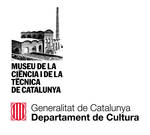06 May 2013
Feature: Digitization of Cultural Heritage. The case of Landesbibliothek Stuttgart
Digitization of Cultural Heritage in general and of books in particular is a recurrent topic in today’s scientific community. Since more and more information is produced just digitally, the share of physical (or analog) data produced every year is constantly shrinking.
According to a pilot research conducted by the School of Information Management & System of the UC Berkely, in 2002 5 exabyte of information were produced worldwide. Among them, the 90% were digital-only content, while the overall printed information (including books, journals, newspapers, magazines etc.) accounts just for the 10% of the data produced.
In particular, books information accounts for just a fraction of the overall information volume, which the American researchers translated in 39 terabyte of digital data.
Even though most of the information is therefore digital-born, the remaining fraction is crucially important, since the “analog” information contains “the most of distinguished information, the most valuable, and therefore the most important to be retrieved”
Many project flourished all around the world to convert and share digitally the Cultural Heritage diffused worldwide: from the most famous partnership between the search giant Google and national institutions, to more autonomous and independent solution, arriving to the more complex and global approach of Europeana.
All of those initiatives, even if deeply different in terms of aims and scopes, allow the widest public to experience directly their Cultural Heritage, exploring ancient books and reading valuable pages directly from their devices, overcoming issues such as conservation, rarity and fragility of the pieces.
CreativeCH, with the first issue of a series of video which will explore the linkages between Heritage, Science & Technology and Creativity, goes behind the scenes of the digitization process, to try to understand which factors are taken into account when deciding which and how to digitize plays and books, which critical factors are posed to curators and how to digitally overcome them.
The feature video will present the digitization activities of the Württemberg State Library in Stuttgart.
The Württembergische Landesbibliothek (WLB) was founded in 1765 by Duke Carl Eugen of Württemberg, and it’s nowadays the largest academic library in Baden-Württemberg, hosting a collection of more than 5,6 million items.
This includes books, newspapers and journals, manuscripts, rare books, music scores, as well as maps, prints, posters, letters from the front, photographs, microforms and electronic media.
More significantly, The WLB houses collections of worldwide significance: more than 15,000 medieval and modern manuscripts, rare books such as incunabula, one of the largest bible collections worldwide with bibles in over 400 languages and dialects and the central archives for literature and research on Friedrich Hölderlin.
The presence of such important and rare collections, and the double necessity to preserve and make them accessible to the broadest public possible fostered the start of the digitization programme at WLB.
The essential nature of those very valuable pieces poses a series of challenges to the digitization process.
The condition of the book itself, the old rebinding and the conservation of the paper, for instance, pose major technical difficulties to the digitization process.
Many techniques have therefore been deployed to overcome such issues, each of them exposing the curators and restaurateurs to pros and cons which must be carefully taken in consideration in order to choose the most appropriate technique.
The WLB Stuttgart is currently using the most advanced techniques to ensure the highest level of digitization. The expertise gained in this field was also used to participate in the development of Goobi, and open-source software for digitization projects and workflow management.
Stefano Sbarbati
back






